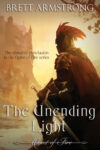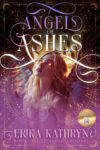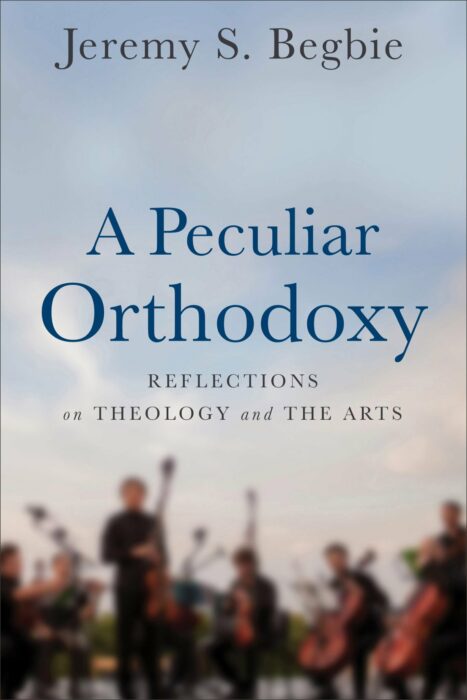Theology And Art: Are They Complementary?
Recently Brett McCracken, through a review at The Gospel Coalition, revived a discussion about Christian theology and art, one that we’ve featured from time to time here at Spec Faith (see such articles as this by guest Mike Duran, and this, this by guest Jill Richardson, and this in rebuttal). McCracken’s discussion centers around A Peculiar Orthodoxy: Reflections on Theology and the Arts, a recent publication by theologian Jeremy Begbie.
McCracken concludes his article with these thoughts:
This is a worthy challenge indeed. The arts can lead us astray when untethered from theological orthodoxy and the “normative texts of the faith.” For too many bored or otherwise restless and relevance-seeking evangelicals, fidelity to the arts has overtaken fidelity to Scripture, with the latter deployed as theological cover when convenient, but often not at all. We can do better.
A fierce devotion to Scripture and a groundedness in the “peculiar orthodoxy” of trinitarian Christian faith should be the starting place in our art-making and art-appreciating, not a dubious add-on to justify any and every TV show, movie, or musical work we love. This proper orientation will not stifle or simplify our experience of art. It will enhance it, placing it within the glorious, illuminating frame of the ultimate referent for beauty: the triune God.
 I think “relevance-seeking” is an apt description of many Christians today, as if it’s up to us to make God and His word somehow germane or applicable or pertinent to society today. In truth, God’s word is already apropos to our lives and it doesn’t need our dressing it up or our covering it up so that “seekers” will feel more comfortable with our stories.
I think “relevance-seeking” is an apt description of many Christians today, as if it’s up to us to make God and His word somehow germane or applicable or pertinent to society today. In truth, God’s word is already apropos to our lives and it doesn’t need our dressing it up or our covering it up so that “seekers” will feel more comfortable with our stories.
From Begbie:
The arts do their own kind of work in their own kind of way, articulating depths of the Word of the gospel and our experience of it that are otherwise unheard or unfelt, while nonetheless being responsible and faithful to the normative texts of the faith. A major research agenda opens up here, as well as a major practical challenge to all who care about the arts in the church. (207–8)
Specifically McCracken, in agreement with Begbie, stands against several tendencies among Christians. One is the legalism that makes no room for the arts—and certainly for speculative fiction, I might add.
Second are the works that “over sentimentalize” Christianity—that make “a premature grasp for Easter morning,” ignoring the cross and the days in the tomb that preceded the resurrection. In other words, our stories are filed with triumph without much struggle, without much acknowledgement that sin costs, that it has consequences, that it hurts.
Third is a fairly new type of writing, in some ways a counteraction to the sentimentality that was so prevalent in early Christian fiction. McCracken identifies this as a ” ‘wallow-in-Good-Friday’ disposition that fetishizes brokenness and suffering, as if Easter didn’t exist.” Consequently, too many stories seem to glory in sin and the evil that seems to be winning in a broken world.
This approach fit the many general market dystopian novels that were so popular not long ago—Divergent and Hunger Games and City of Ember—and less so, Christian works such as the Safe Lands or Out of Time series, Swipe and a host of others.
I understand the need to be truthful to our experience, which means we need to acknowledge sin—in the world and in the hearts of each one of us. Consequently we do read and write about broken characters with great needs.
 What McCracken seems to say, in agreement with Begbie, is that we need to walk the line between the fallen world and the reconciliation believers find in Jesus Christ. We cannot deny the fact that we were once dead in our transgressions. But at the same time, we ought not make our redemption, our new life in Christ, a mere footnote to the story.
What McCracken seems to say, in agreement with Begbie, is that we need to walk the line between the fallen world and the reconciliation believers find in Jesus Christ. We cannot deny the fact that we were once dead in our transgressions. But at the same time, we ought not make our redemption, our new life in Christ, a mere footnote to the story.
There’s more in McCracken’s thoughtful review, and much that I think can also apply to speculative fiction as well. For instance, Christians can at times seem uncritical in our acceptance of any work of art from a Christian. The same seems to me to be true of speculative fans—we’ve gone too long having Christian speculative fiction rejected by Christian publishers, we may have become overly accepting of all things speculative.
Consequently, I’d like to see more Christian fiction, including more Christian speculative fiction, that is “more Christian.” And also more noteworthy for its artistic qualities.
























Rather than making the gospel relevant, fiction can help explain/show how the gospel is already relevant. The Bible has had a huge prevalence in our culture. That’s a good thing, but it also means that it feels cliche, or even backwards and messed up, due to the amount of people that have misused the gospel.
Most Christian fiction authors have their own parts of the gospel that they seek to show the relevance of. I have a Faust themed story, for instance, that delves into a lot of heavy theological and philosophical stuff, and one thing it discusses is why God doesn’t force us to love him.
That story is a tragedy, like many of my other tales, which kind of leads to another thing. I tend not to like stories where the chars just seem to be randomly suffering for no reason, but it’s also pretty annoying when stories are unrealistically happy.
Cause and effect is an important part of storytelling. If a char is angsty and suffering, it’s important to take the reader on a journey that makes them empathize with that character. That helps us learn in ways other stories can’t. Not every story needs to be a tragedy, but the awesome thing about a good tragedy is that it has a huge potential for showing all sides of life. A huge component of tragedy is loss, and most of the time people only care deeply if they lose something good.
So a tragedy author can do an amazing job of showing boundlessly happy and joyful times, and then show how that happiness degenerated into loss. A reader can then study that for ways to make sure they don’t end up losing happiness like the characters did. So, we end up with a story that shows all sides of life , makes us care, and teaches important lessons.
Excellent article, and very encouraging. Thanks so much!